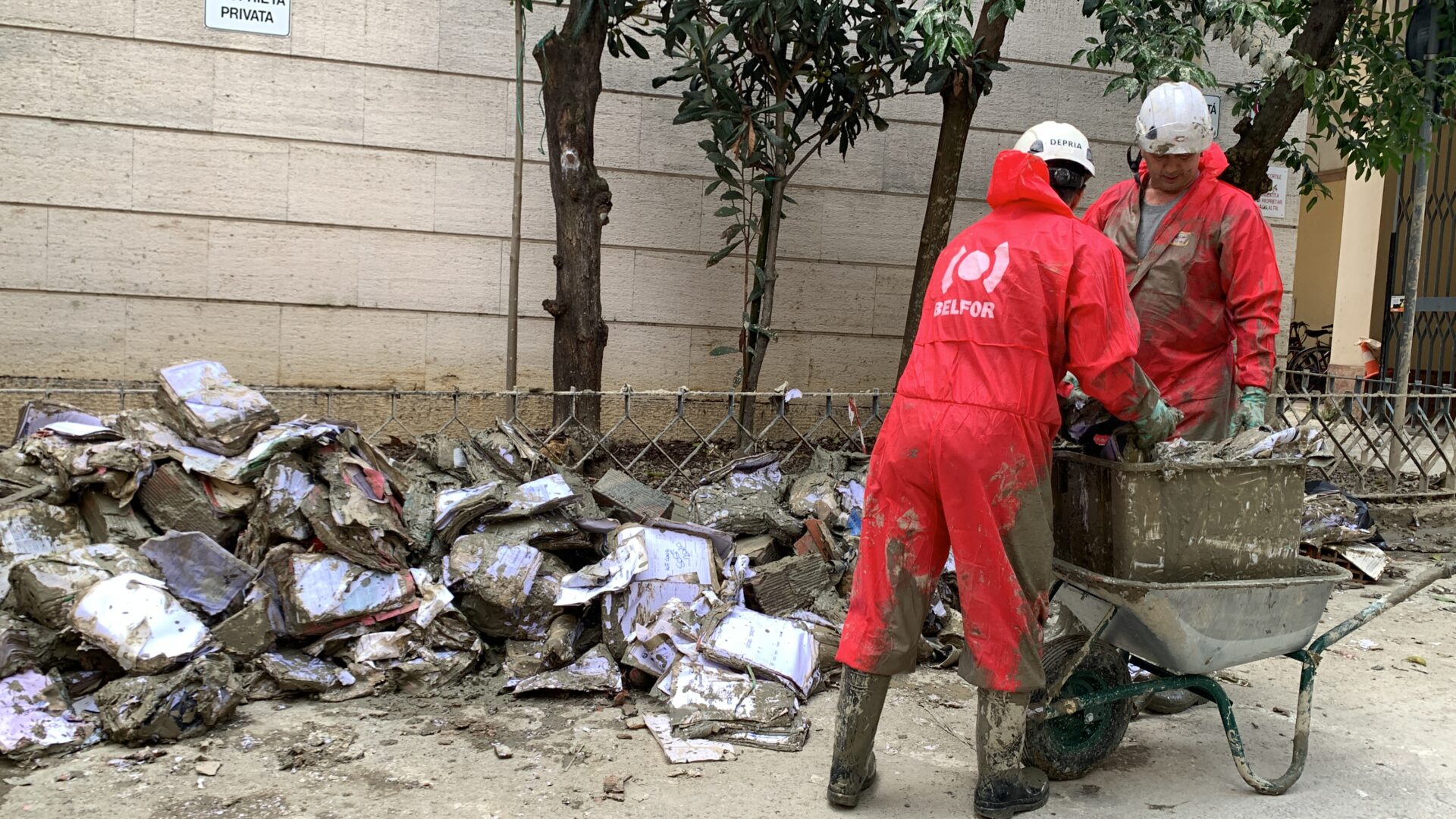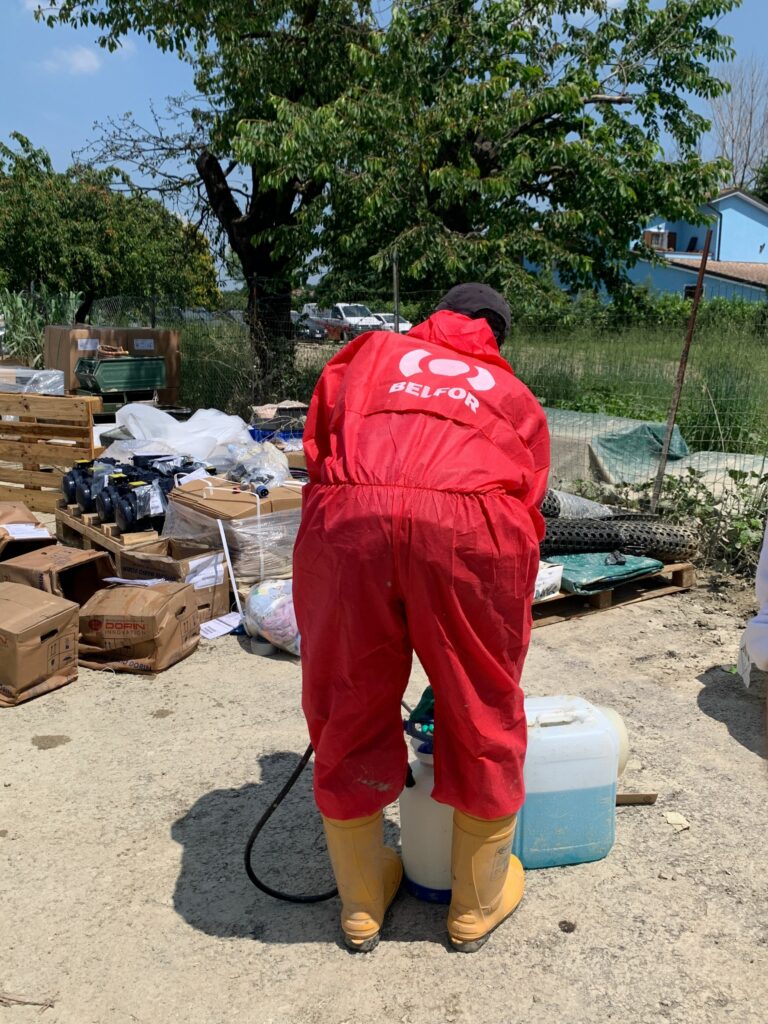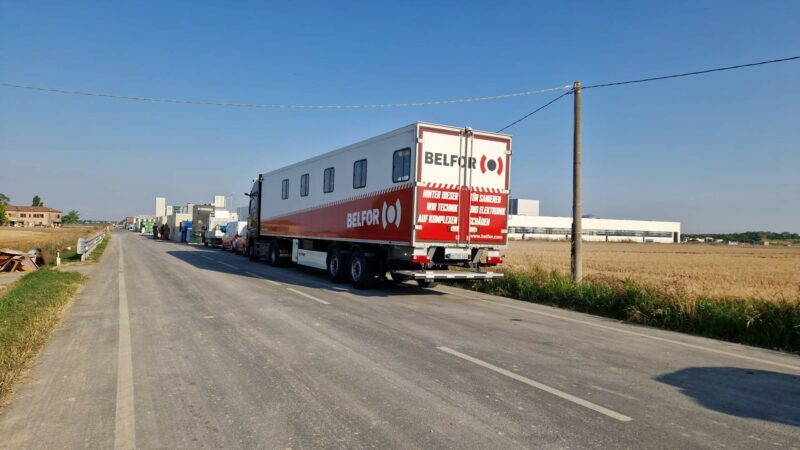Good risk management can limit the damage in a natural catastrophe

As extreme weather hits Europe again, companies must do more to prepare for an emergency
Europe has again been hit by extreme weather this summer, resulting in floods in northern Italy. In 2021 it was the German region of Ahrtal valley and in 2022, large parts of the UK were submerged. In May, the wealthy region of Emilia Romagna was hit with six months of rainfall in just 36 hours.
Extreme weather events are causing huge losses across Europe
More than 43 towns and villages were flooded, 15 people lost their lives and the Italian government provided €2bn in aid for farmers and business owners affected by the event. The provisional cost of the damage amounted to €7bn.
It is an increasingly familiar story in Europe. In 2022, summer floods in Germany cost the lives of 200people. Economic losses reached €46bn, of which just €11bn were covered by insurance.
Regions such as Emilia-Romagna and Ahrtal Valley are home to many businesses and industries and what exacerbated the devastating impact of natural catastrophes was the lack of preparation.

Insurance coverage is not enough to recover
At times like these, restoration companies such as BELFOR play a critical role in helping these companies to recover and return to business operations as quickly as possible. But companies can also help to limit the disruption they face by devising, implementing and practicing an emergency plan.
Unlike traditional property insurance, the priority is not raising funds to finance the recovery. BELFOR´s Martin Schachtschneider, after helping many companies to recover after floods, says: “Money alone won’t help you recover after a loss. You need quick access to manpower, skilled workers and a lot of equipment. And you need it fast to prevent long-standing business interruption.”
Restoration companies are already busy during normal times when there is no emergency. So one can easily imagine that in times of extraordinary high demand for restoration services during floodings, many affected companies will struggle to get the restoration resources they need to shorten business interruption.
The BELFOR response to floods and high demand for restoration
In regards to the Emilia Romagna floods, BELFOR Italy has worked around the clock with an armada of technicians to enable damaged companies to resume activity as soon as possible. The company has been able to call on its International Major & Complex Project Team that has supplied extra manpower and equipment from Germany, Austria, Poland, France, Denmark, Sweden, Spain, Israel and China to support the Italian team.
For example, machinery restoration specialists were sent from BELFOR DeHaDe (Germany) along with industrial dehumidifiers and the new mobile electronics restoration truck. BELFOR has also set up a logistics centre in the Italian town of Forli to handle the distribution of manpower and materials to construction sites within the affected area and to act as an additional base for electronic remediation efforts in the region.

But even with these steps, the demand far outstrips the supply at times like this. As Filippo Emanuelli, Managing Director of BELFOR Italy said in the aftermath of the Emilia Romagna floods: “Our phones are ringing non-stop. The customers supply chain is affected and they need to get back on track as soon as possible.”
The sense of urgency is understandable and it can be difficult to find the patience that is necessary in the aftermath of a catastrophic event. Despite the capacity that BELFOR has to deal with emergencies, as the number one restoration company worldwide, there is always a time element.
BELFOR has addressed the demand for services by establishing RED ALERT, an emergency response service that prioritises clients at such times as the immediate aftermath of a flood.
Priority service is key to shorten business interruptions
RED ALERT has played a critical role in other natural catastrophes in recent years, as testimonies from risk managers and BELFOR clients demonstrate.
Matthias Beck, head of Insurance and Risk Management at WÜRTH Group, German industrial parts distributor and a RED ALERT client, said: “When I received the call I could immediately reassure my Italian colleagues: BELFOR is coming, they have the resources, we know each other well. WÜRTH is a RED ALERT client and therefore we have priority status.”
The status of being a RED ALERT client can also be reassuring for a company’s insurers. Ute Roch, Head of Insurance, at German pharmacy chain Rossmann said: “After the heavy rain 2021, many damage reports arrived from our stores. Internally, we were able to show the organisation: RED ALERT takes action, we are prepared, we receive help. It’s good to have BELFOR as a partner.
“Our insurers also recognise that. With RED ALERT, BELFOR is strongly anchored in our processes that take effect in the event of damage. It just works – and we make our claims management more efficient,” said Roch.
Higher temperatures, draughts and heavy rains
It is unlikely that Emilia Romagna will be the only area in Europe affected by extreme weather this summer. In the Netherlands, more than half of the land surface is prone to flooding, including the 26% of land that lies under sea level. In addition, long periods of drought can affect soil quality which can also lead to flooding.

By loading the video, you accept YouTube's privacy policy.
Learn more
Heavy rainfall after a drought can be really dangerous and might lead to flash flooding. Video: Courtesy by Alex Malm
Nor is flooding the only catastrophe caused by extreme weather. A lack of rainfall and high temperatures have led to wildfires in parts of Europe. But perhaps the main takeaway from the impact of climate change on Europe is that the frequency of natural catastrophes is increasing. Furthermore, there are more areas which could now be considered vulnerable.
The question every CEO should ask: What´s our recovery plan?
Therefore it is critical that companies adequately prepare for major natural catastrophes. Unfortunately this is not always the case. There are two types of companies – those that know exactly what to do in the case of a crisis because they have established processes and a restoration supplier that will deliver, and those companies that will lose time trying to figure it out because they have neglected to secure restoration resources in advance.
Fortunately this message is resonating. Daniele Maggioni – RED ALERT product manager of BELFOR in Italy – said: “It is a lesson that many other Italian companies are learning. We are receiving many more enquiries about our priority assistance programs while a large number of companies want to take part in our training programs to be better prepared for the next damage due to extreme weather or fire or pollution damage.”
The floods in Emilia Romagna have led companies in Italy to better prepare for natural disasters, just as the extreme weather events in Germany, the UK and elsewhere have served as similar calls to action.
Hopefully it will not take another extreme weather event for other European companies to revise their response plans in order to answer the fundamental questions – how can we ensure that we do not to have to wait to secure the vital resources needed to get back to business?
How to prepare your business for natural catastrophes?
If you can´t afford to have your business operations down for long, RED ALERT® is the solution. Get the answers you need: